(Photo Credits: Dominick D, CC BY-SA 2.0, via Wikimedia Commons)
The Illinois Supreme Court has overturned the conviction of Jussie Smollett, ending years-long legal saga over his 2019 hate crime allegations. The ruling, which centers on the principle of double jeopardy, resolves questions about the handling of Smollett’s case by multiple prosecutors.
Smollett was convicted in 2021 of filing false police reports after claiming he was attacked in Chicago by two men who used racial and homophobic slurs. The police later concluded that Smollett had staged the incident with two accomplices, allegedly paying them to orchestrate the attack. Cook County State’s Attorney Kim Foxx initially dropped all charges in exchange for Smollett forfeiting his $10,000 bond and completing community service. This decision was heavily criticized and prompted the appointment of special prosecutor Dan Webb, who brought the charges back.
Dan Webb, a highly respected attorney and former U.S. Attorney for the Northern District of Illinois, served as the special prosecutor in Jussie Smollett’s case. He was appointed in 2019 to investigate the abrupt dismissal of initial charges by Cook County State’s Attorney Kim Foxx’s office, which drew widespread criticism and accusations of favoritism. Webb conducted an extensive inquiry, concluding that Smollett had fabricated a hate crime against himself and that Foxx’s office had mishandled the case. He brought fresh charges against Smollett, leading to the actor’s conviction in 2021 for lying to police about being the victim of a racist and homophobic attack. The incident, which he claimed involved masked assailants, was later determined to be staged with the help of two acquaintances. Smollett denied these accusations, maintaining his innocence throughout the legal process.
However, in its ruling on Thursday, the Illinois Supreme Court found that Smollett’s agreement with Foxx’s office amounted to a binding resolution, thus barring the re-prosecution that led to his conviction. Prosecutors argued that the dismissal did not preclude further charges, but the court disagreed, citing concerns about fairness and prosecutorial overreach.
Justice Elizabeth Rochford wrote in the court’s 5-0 opinion:
We are aware that this case has generated significant public interest and that many people were dissatisfied with the resolution of the original case and believed it to be unjust. Nevertheless, what would be more unjust than the resolution of any one criminal case would be a holding from this court that the state was not bound to honor agreements upon which people have detrimentally relied.
Smollett’s attorney, Nenye Uche, said in a statement: “This was not a prosecution based on facts, rather it was a vindictive persecution and such a proceeding has no place in our criminal justice system.” Uche emphasized that “rule of law was the big winner today,” expressing gratitude to the court for “restoring order to Illinois’ criminal law jurisprudence.” On the other hand, special prosecutor Dan Webb voiced his disagreement with the decision, clarifying that it “has nothing to do with Mr. Smollett’s innocence.”
“The Illinois Supreme Court did not find any error with the overwhelming evidence presented at trial that Mr. Smollett orchestrated a fake hate crime and reported it to the Chicago Police Department as a real hate crime, or the jury’s unanimous verdict that Mr. Smollett was guilty of five counts of felony disorderly conduct,” Webb said.
The latest ruling emphasizes procedural errors in his second prosecution. Legal experts have noted that while the court did not dispute evidence from the 2021 trial, the decision reflects significant concerns about judicial fairness. Smollett’s attorneys argued that his initial deal to drop charges—under which he forfeited a bond and completed community service—should have resolved the matter entirely.
Smollett’s legal team also criticized the heavy scrutiny and media attention surrounding the case, which they claim influenced the decisions of both prosecutors and judges. This case has sparked a broader conversation about accountability, race relations, and the criminal justice system in high-profile cases.
Watch Smollett’s attorneys’ statement after the Illinois Supreme Court overturned Smollett’s conviction:
Timeline of Jussie Smollett Case:
- January 29, 2019: Smollett reports being attacked by two men in Chicago who used racial and homophobic slurs, poured a chemical substance on him, and tied a rope around his neck.
- February 13, 2019: Police arrest two brothers, Ola and Abel Osundairo, who later claim Smollett paid them to stage the attack.
- February 21, 2019: Smollett is charged with disorderly conduct for allegedly filing a false police report.
- March 26, 2019: Prosecutors drop all charges in exchange for Smollett’s forfeited $10,000 bond and community service.
- August 23, 2019: A special prosecutor, Dan Webb, is appointed to review the case.
- February 11, 2020: A new indictment charges Smollett with six counts of disorderly conduct.
- December 9, 2021: Smollett is found guilty on five of six counts of lying to police.
- March 10, 2022: Smollett is sentenced to 150 days in jail, probation, and fines; he serves six days before being released on bond during appeal.
- November 21, 2024: Jussie Smollett’s conviction was overturned by the Illinois Supreme Court after more than two years of legal efforts by his defense team. They argued that the actor should not have been retried in 2020, after the Cook County State Attorney’s Office had dropped the initial charges in 2019. The dismissal had been made in exchange for Smollett performing community service, but he was later recharged with a similar case following scrutiny over the initial decision. The court’s ruling is a significant development in the long-running case.
Read here and here for more information on this news.

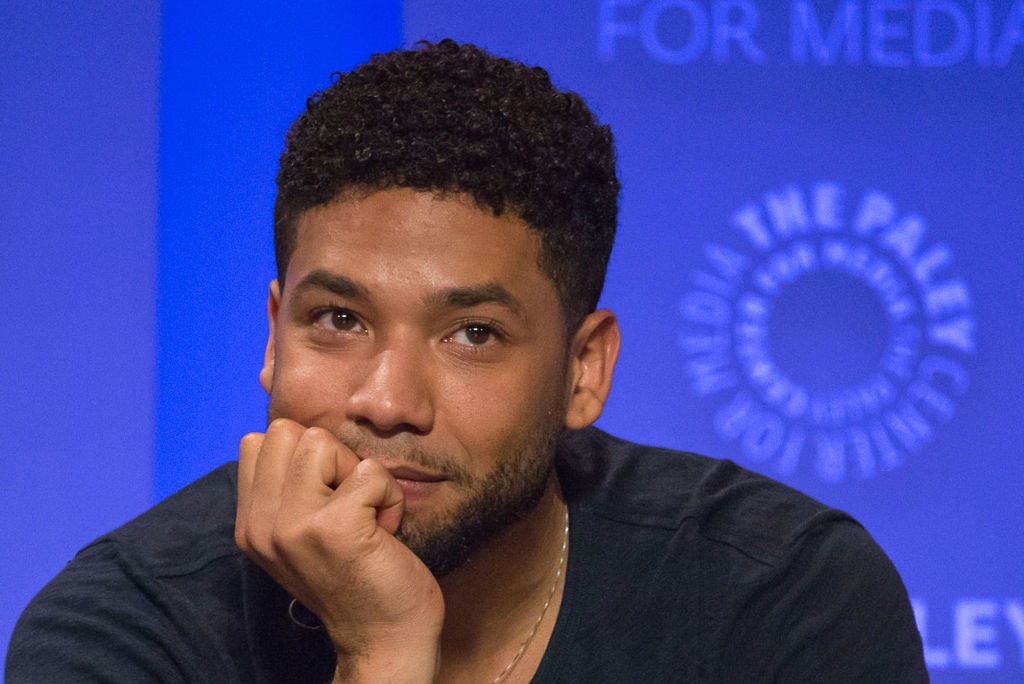
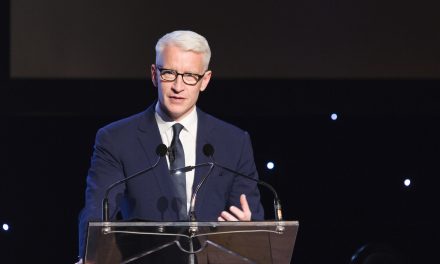
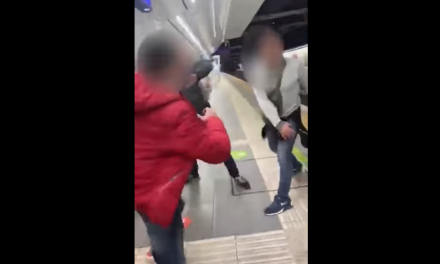
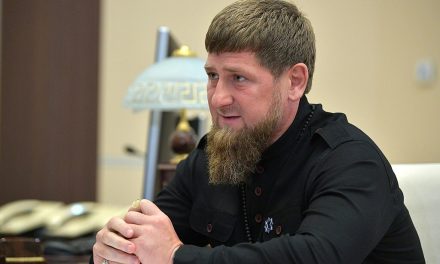
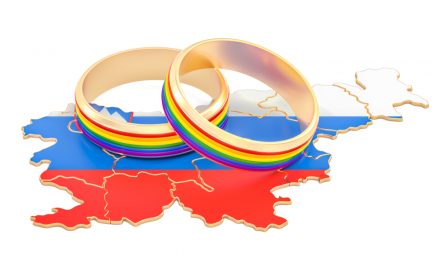




What he did was utterly disgusting.
I agree but I still think jan 6th insurrection was more utterly disgusting!!!!! Glad no one died during Jesse’s ordeal.
Not surprised in IL did they this. What he did shouldn’t be taken lightly but unfortunately this only emboldened his behavior…
JUST LIKE TRUMP TAKING PLACE IN THE UNITED STATES WILL “EMBOLDEN ” ALL HIS FOLLOWERS……..HATE GROUPS….REPUBLICANS ETC…..
AND JUST LIKE THOSE TRASHY ASS PEOPLE GOT OFF…….
SO DID >>HE……..
Post-election results show record numbers of women, Latinos and Blacks voted for President-elect Trump. The Democratic Party, its candidates and high-profile supporters attempted to shame women, Blacks and Latinos into voting for Harris just because she and they shared some biological traits. Many Democrats crossed the line and voted for Trump. When all was said and done, voters said they wanted a strong economy, lower inflation, safer borders, and peace … issues that are beneficial for all. They rejected the notion they owed Harris their vote due to biology. They rejected the divisiveness push by the Democratic Party. Looks like… Read more »
There is NO EXCUSE for voting for a criminal!
Apparently people who can longer afford basic goods and services felt differently.
And apparently America is deplorable too. Very much so.
He has not been convicted. Maybe you should educate yourself instead of listening to the nasty legacy media.
Criminal? You cannot believe that the weaponized government could be trusted. Normally you have to convicted individually of each crime, here the judge lumped them together and said if guilty of one, then guilty of all. That is a crime, that NY is trying to get away with. Anyone who is a lawyer whos that it is wrong and the judge should be disbarred. Plus the judge was not impartial because he donated to Biden. This so called criminal charges will be overturned, without any doubt.
Wake up. It’s done all of the time….
You & people like YOU are THE PROBLEM….
they forget that they live in a country where they can shoot off their mouths with no repercussions
TDS?
Hopefully you are well stocked up on tissues?
It’s obviously gonna be a very long four year cry.
What will “The Community” do when they hear that President-elect Trump has chosen Scott Bessent, a former Democratic Donor and openly gay, as Treasury Secretary?
Once confirmed, he’ll implement tax cuts that Trump ran on.
Oh the horror! What’s to become of our country?!?!?!
People who make false claims make it harder for those who are actual victims to be believed. Hopefully, he’ll be wiser during the incoming administration over the next four years and keep his lies to himself. Of course, there are going to be some people who will be emboldened to push a marginalization agenda no matter who is in office. It is better to show the truth than to make something up to prove a point.
It’s all Kim Fox’s fault. She let him off because he’s a D class actor and she likes his notoriety. If she would have properly done her job and taken him to trial none of this would have happened. But instead, she kissed ass yet again and fucked over the citizens of Cook County as she as done since taking office.
Who cares? He should have gone to prison.
Why don’t you have the same energy when it comes to Trump!! He’s a professional liar, convicted criminal!
Maybe, but more people voted for him than Harris. What does it say about Democrats, when more people will vote for a looney like Trump than them?
In the end, they picked the lesser of the loonies.
yo, the man sits at the top
So four more years of funding Ukraine murder and corruption? Open borders to invaders can bid up the price of housing (12 to a room) and under cut the minimum wage so many of our useless grad qualify for? I pay taxes asshole, and I’m sick and tired of paying for every freaking grift that comes along. Jussie included. Sure that anal cyst will sue for reparations. You pay him… oh yeah, your kind expects the rest of us to fund your bull stuff.
Putin talking points on Ukraine. Border crossings were lower in 2024 than when Trump left office. Lowest unemployment rate in 50, I repeat 50, years. Nope. Facts don’t change a thing for the brainwashed from Fox true believers. When facts don’t matter, the society believes often-repeated lies calked The Big Lie. See Goebbels.
Speaking of lies, everything you wrote above is an easily disproven fabrication. Let’s demonstrate, you pick part of one year, after the progs realized the boarder invasion was a losing election issue and halfheartedly “cracked down”, and compared it to a full year under trump. Now do the full term comparison, or discuss deportations of criminal aliens? The September 2024 unemployment rate was 4.1%, it was 3.6% in 2019, it only went up because of Dem enforced lockdowns in blue states. Projection, without it what do you have?
You assertions are already debunked, the talking point that boarder crossings are down is an illusion, you take only part of 2024 under Biden and compare it to a full year under Trump, when the Dems saw that the border invasion was a losing election issue and they imposed some half hearted restrictions. Why don’t you discuss full term over full term or compare the number of criminal aliens deported? In September 2024 the unemployment rate was 4.1%, the rate fell in each year of Trumps presidency and hit 3.6% in 2019 it only went up when Blue State enacted… Read more »
And you really believe the BS you just stated. Stop listening to conservative podcast and media you might learn some facts! I’m pretty sure you pay little or no taxes. Tell you Boy Trump to pay his taxes before you go crying about others!
Trump gets audited, we know this because a politically motivated IRS employee leaked his return, he pays his statutory required taxes.
Apples and oranges
I agree, Trump is a liar and a cheat and a thief. Yes, a convicted criminal (who will do no prison time). Also impeached, twice. But what does that have to do with Jussie Smollett?
EXACTLY???
Thanks for the clarity, who knew that being stuck on stupid was another adverse side effect of Trump Deranged Syndrome?
Hopefully it’ll clear up on it’s own in the coming years.
Why didn’t you try something totally refreshing and stay on task?
Obviously his parents did not tell him the “cry wolf” story. Of course the truth doesn’t seem to matter on things these days. FAKE
Congratulations, Jussie! Good luck in your future endeavors. Here in Harlem we support you!
Support your local pimp !
Jussie beat them honky at they game. F…k dem foos. BBC Matters!
The “Re-prosecution” has been overturned. The original conviction resulted in forfeiture of the Bond and Community Service. That still stands.
In the end, he’s been found guilty and has paid a price. He destroyed his career caused the cancellation of a television production. He also made it more difficult for anyone who is attacked in the future to be believed.
His ass should be doing time in prison he is a fake ass person and his acting sucks to they should out cast him in Hollywood so he can’t do anything in movies or television
another scam
GOOD FOR HIM
He lives in an alternative universe of his own creation.
We simply live in a day & age that is surely biblical. Where wickedness prevails & the love/hearts of many are growing cold because of it. The guy is a grade A narcissist & the Trevor Noah skit they did concerning Smollett’s scheme is EXACTLY how it went down. This also definitely goes back to Trump’s presidential win. The far left is seriously going out of their way to double & triple down on continued lawlessness & behavior.
Yeah, he’s a delusional POS from the word “go”.
Similar thing happened with Bill Cosby. People are protected from double-jeopardy by the Constitution. If a prior government official acting within their legal capacity makes a decision that subsequent administrations dislike, too bad. Don’t forget, the original agreement was approved by a judge. The sad thing is the persecuted party has to spend their money and have no recourse, no way to regain their reputation and no means to be compensated for the aggravation they have to go through to fight the system. Note: I never said anything about the act or his actions. This is one of those examples… Read more »
Bill Cosby actually served time in prison, while your incoming president has several felony convictions, and several sexual assaults against him, but yet he’s headed for top office in the country and world. And I am referring to his acts and actions
.
I cannot believe this guy told this obvious lie, now expects us to welcome him back into the fold, get on with his career? Fuck him!!!!!!!!!!!!!!
Once again a piece of garbage gets away with doing dirt. SMFH. That’s the world we live in.
Yep! And a piece of garbage is headed back to dirty up the WH with even more dirt. Yep! That’s the world we live in.
This asshole has triple Teflon Protection black, gay and democrat. Go F yourself Jussie.
In the end Jussie Smollett is a lying worthless POS who will never amount to anything.
Apparently some people will do anything for that sixteenth minute of fame.
Libtard Illinois – what else do you expect from a TOTALLY CORRUPT State and the crooked ass LOSERS that are public employees there?!? NO WONDER it’s BANKRUPT of BOTH MONEY and MORALS!!!!!!!
This lying weasel makes me sick
He should be in jail. What he did was terrible, cause racial problems when their wasn’t any.
Please stop giving this piece of filth an audience.
What trash!
I am disappointed in A4A’s defense of this fabrication of a hate crime, but then again maybe I’m not, They’re doing a stellar job of censoring comments just like the media today. So much for this “news” forum.
The most generous interpretation of the fact that they promote this fraud is because they feel he was somehow treated unfairly because of being gay the worst is that they believe his story.
The best reading of A4As featuring this article is that they believe that he was somehow singled out because he is gay (he wasn’t) the worst is that they actually believe the hoax.
A4A will not allow any post that goes against the narrative.
they simply wrote a news report that they knew will be popular among readers and will garner a lot of comments.
Jussie Smollett is a disgrace to men in general, gay men, and Black men. Our inept corrupt justice system is a disgrace.
Yeah while today, JACK SMITH is DROPPING ALL Jan. 6th charges against DICK-TATOR tRUMP making him TOTALLY ABOVE THE LAW, but yeah let’s focus on GUILTY Jussie Smollett on his small BS dropping charges here…. >:-(
Maybe it’s because the case(s) that Democrats have tied brought against him and have the county up for years, just didn’t(don’) meet legal merit?
So about the propriety of Hunter Biden, his laptop and his father? Gee, what ever became of those? Maybe we’ll find out.
Smollett has in now way “gotten off”. It cost him $10,000, Community Service and his career because he tanked a TV show.
As a black man, this still bothers me that he did this. Why did he do it? He had so much ahead of him in his career, and he destroyed it over what? What was he thinking? He disappointed us. So many of us have experienced real racism, homophobia, transphobia, etc… There’s no room for making up stuff up like this. I’m sure he’s embarrassed and definitely learned a valuable lesson. I hope he continues to find work in the industry, but I’m sure it’s extremely difficult.
Very, very, very smart man. Why? Because whether he know or not that humans are not reliable when seeking justice, he held out because simply they are. A ‘kween’ would have caved. He played EVERYONE like a flute and won. Regardless of your opinion, which is valueless, he won.New ‘butch’ respect for you Jussie. NOT ONCE did you break the golden rule of ‘keep your mouth shut’ and it prevailed. You didn’t behave all ‘gay, emotional, weak, nor arrogant’, you said what u had to say, stuck to it, and you let ‘the minions’ do their work which showed how… Read more »
[…] allegations of staging a racist and homophobic attack against himself. The Illinois Supreme Court overturned the conviction in 2024 on procedural grounds, and he later settled with the City of Chicago through […]